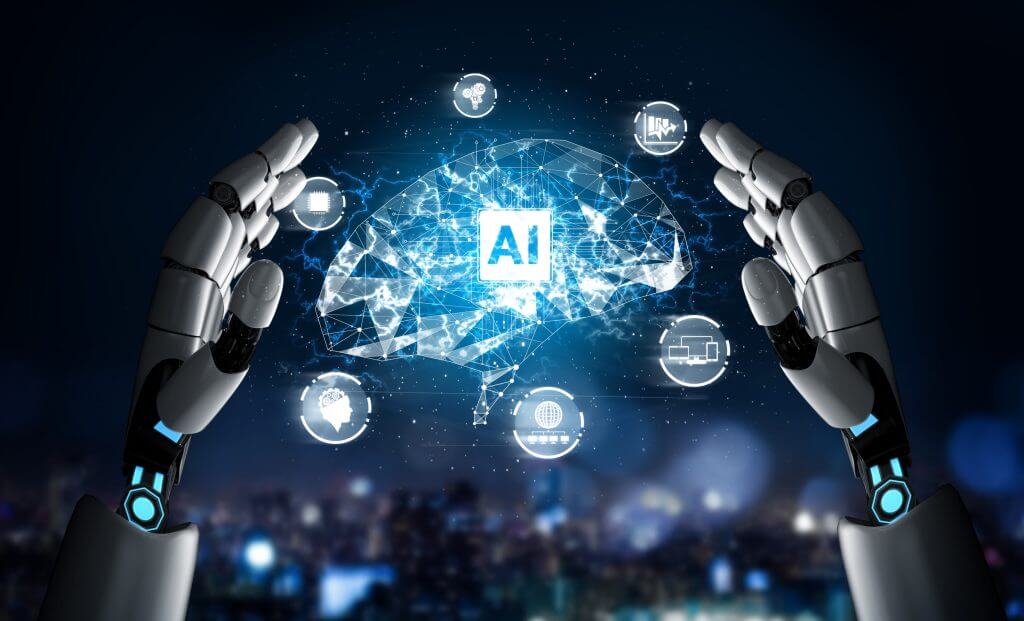
In the digital age, content creation has become an essential part of marketing and advertising. With the rise of social media, e-commerce, and other online platforms, businesses are constantly seeking innovative ways to create engaging and informative content to reach their target audience. In recent years, artificial intelligence (AI) has emerged as a powerful tool that can transform the way content is created and delivered. One such tool that has gained significant attention is ChatGPT, a large language model that can generate human-like text in response to a given prompt.
ChatGPT has made headlines in the content creation world for its ability to generate high-quality content at scale, which can save businesses time and resources. This tool has the potential to revolutionize content creation by providing a cost-effective way to produce large volumes of content quickly. However, the rise of AI in content creation has also sparked a debate about the role of human writers in this process. While AI-powered tools like ChatGPT can produce text that is indistinguishable from that written by humans, there is a concern that human writers could be replaced by machines.
In this article, we will explore the potential of ChatGPT as a content creation tool and its impact on the role of human writers. We will examine the benefits and limitations of ChatGPT and compare them with those of human writers. Additionally, we will delve into the ethical implications of using AI-powered tools like ChatGPT in content creation, including concerns about bias and transparency. Finally, we will consider the future of content creation in the age of AI and the role of human writers in this landscape.
The Rise of AI in Content Creation
Content creation has traditionally been the domain of human writers. However, as AI technology has advanced, it has become increasingly capable of generating written content. AI-powered content creation tools can analyze data, identify trends, and even create new content from scratch. One of the most significant benefits of using AI in content creation is that it can be done at scale. AI-powered tools can create thousands of pieces of content in a matter of seconds, which would take human writers hours or even days to produce.
The Benefits of Using AI in Content Creation

There are several benefits to using AI in content creation. For one, AI can generate content faster than human writers, which can help businesses keep up with the demand for fresh content. Additionally, AI can analyze data and identify patterns that human writers might miss, which can lead to more effective content. AI-powered tools can also automate many of the tedious tasks associated with content creation, such as formatting and proofreading, freeing up human writers to focus on more creative tasks.
What is ChatGPT?
One of the most promising AI-powered content creation tools is ChatGPT. ChatGPT is an AI language model developed by OpenAI that is capable of generating human-like responses to a wide range of prompts. ChatGPT uses a machine learning technique called deep learning to analyze text and generate responses based on patterns in the data. The result is an AI-powered content creation tool that can produce high-quality content in a matter of seconds.
ChatGPT vs. Human Writers
While ChatGPT is an impressive tool, it’s worth examining how it stacks up against human writers. There are certainly benefits to using ChatGPT over human writers. For one, ChatGPT can generate content much faster than human writers. Additionally, ChatGPT can analyze data and identify patterns that human writers might miss, leading to more effective content. However, there are also limitations to AI-powered content creation tools like ChatGPT. For one, ChatGPT lacks the creativity and nuance of human writers. While ChatGPT can generate high-quality content, it is still limited by the data it has been trained on. Human writers, on the other hand, can create content that is more creative and nuanced, and can inject their own voice and personality into their writing.
Use Cases for ChatGPT in Content Creation
There are several use cases for ChatGPT in content creation. One of the most promising is in the field of e-commerce. ChatGPT can be used to generate product descriptions, reviews, and other content that can help customers make informed purchasing decisions. Additionally, ChatGPT can be used to generate social media posts, blog articles, and other content types that require a large volume of content. ChatGPT can also be used to automate the translation of content into different languages, making it an attractive tool for businesses with a global presence.
Ethical Considerations
As with any disruptive technology, there are ethical concerns surrounding the use of AI in content creation. One of the biggest concerns is the potential impact on human writers. As AI-powered content creation tools like ChatGPT become more advanced, there is a fear that human writers could be replaced by machines. This could have significant implications for the job market and for the quality of content being produced. Additionally, there are concerns about the potential for bias in AI-generated content. Since ChatGPT is trained on existing data, it could perpetuate existing biases and stereotypes in its content.
To sum up, the emergence of AI in content creation is a thrilling development that could significantly impact both businesses and consumers. Although ChatGPT is a remarkable tool that can produce top-notch content on a large scale, it cannot replace human writers. Human writers have a level of creativity and finesse that AI-powered tools such as ChatGPT cannot imitate. Nonetheless, ChatGPT can be utilized in specific cases in content creation, particularly in e-commerce and social media domains.
As a digital agency, it is imperative to reflect on the ethical implications of using AI-powered content creation tools and guarantee that they are implemented responsibly and transparently. With the advancement of AI-powered content creation tools, it’s crucial to strike a balance between technology and creativity, and use them effectively to improve the quality of content creation.
Related articles:
https://digfinity.com/mastering-the-art-of-content-creation-with-chatgpts-ai-writing-assistance/
https://digfinity.com/unlocking-the-power-of-ai-the-future-of-seo/
https://digfinity.com/google-clouds-latest-ai-tools-to-boost-customer-experience-for-retailers/
https://digfinity.com/the-power-of-ai-in-email-marketing-how-machine-learning-boosts-your-campaigns/
https://digfinity.com/using-chatgpt-4-to-optimize-voice-search-for-seo/



